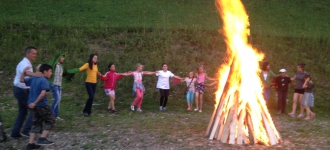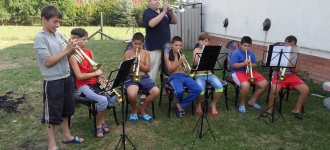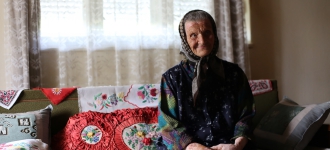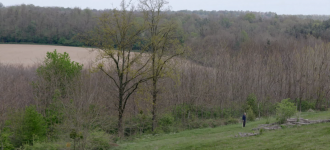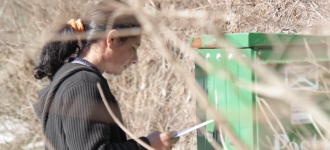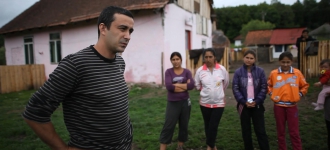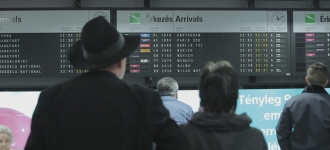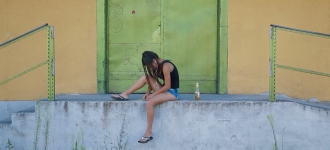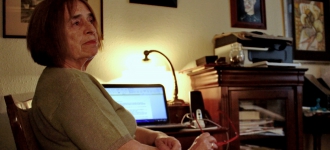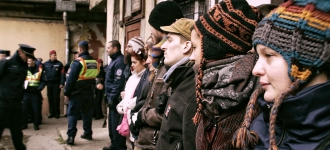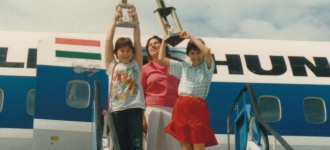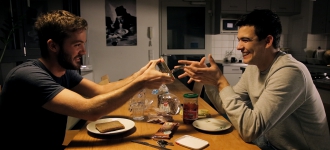Hungarian Panorama
Iborfia is a tiny village in Zala County. It is also the title of a documentary by Alexa Bakony. Iborfia became famous when 100% of its population took part in the referendum on the “compulsory acceptance of migrants”. It wasn’t difficult for the committee to count the ballots: all of the nine village voters, including the committee themselves, voted against Hungary admitting refugees. The film’s protagonist is an old man with graying hair and a creased face who lives in a dilapidated house at the edge of the village. At the beginning of the film he says that refugees should be settled in abandoned houses (the bigger the family, the bigger house) to revive the dying community. But later, like the others, he votes against Hungary taking in refugees. This story is a miniature portrait of what has happened throughout Hungary. It is also the story of one Hungarian man who represents all that is baffling to the outside world; Hungarians, like any other nation, hate theft, abuse of power, and lying, and as individuals are welcoming and understanding — yet, they continuously elect arrogant leaders who openly commit these crimes, hate monger and divide people rather than promote love and cooperation. This short masterpiece offers direct insight into how individuals who call for Christ, in the crowd ask to free Barabbas. This hateful, political division is happening withing Hungary’s borders as well, as seen in No Country for the Poor, wherein we see a small community united to stand for the rights and dignity of all Hungarians.
While the overall picture is far from rosy, for the first time in many years, the majority of films from 2017 aim to give hope to future generations. In Brass Bandits and Anything Can Make Me Richer, children in Borsod County and Moldva are seen living in extreme deprivation. They receive help and support from virtuous adults who offer music and theater classes, and who attempt to show the children a way out of their situation. The youngsters in Leave/Stay and Schrott, just like hundreds of thousands of others, seek a better future abroad; some succeed, some do not. The sisters in Polgár Variant were born in much better circumstances. Their father raised them as geniuses, and two of them do not live in Hungary any more. Mother’s Imprint is another documentary of hope. It is the story of a brave and smart Jewish woman, filmed by her daughters, who challenged the fate meted out to her and her people by murderers. Burdened by the Past would also make an excellent title for Mother’s Imprint, but this film, again about a smart, brave and honest women, concerns documentary filmmaker Judit Ember. What kind of films would she make today? Certainly, there would be no lack of topics for her.
While the overall picture is far from rosy, for the first time in many years, the majority of films from 2017 aim to give hope to future generations. In Brass Bandits and Anything Can Make Me Richer, children in Borsod County and Moldva are seen living in extreme deprivation. They receive help and support from virtuous adults who offer music and theater classes, and who attempt to show the children a way out of their situation. The youngsters in Leave/Stay and Schrott, just like hundreds of thousands of others, seek a better future abroad; some succeed, some do not. The sisters in Polgár Variant were born in much better circumstances. Their father raised them as geniuses, and two of them do not live in Hungary any more. Mother’s Imprint is another documentary of hope. It is the story of a brave and smart Jewish woman, filmed by her daughters, who challenged the fate meted out to her and her people by murderers. Burdened by the Past would also make an excellent title for Mother’s Imprint, but this film, again about a smart, brave and honest women, concerns documentary filmmaker Judit Ember. What kind of films would she make today? Certainly, there would be no lack of topics for her.
György Báron
| Mészáros Márta, Pataki Éva • Hungary • 2017 • 50min | Surányi z. András • Hungary • 2017 • 78min • Hungarian | Asia Dér • Hungary • 2017 • 60min • Hungarian |
| Alexa Bakony • Hungary • 2017 • 21min • Hungarian | Gergely Pápai • Hungary • 2017 • 14min • Hungarian | Máté Tóth Ridovics, Zoltán Gálovits, Szabolcs Kővári, Szabolcs Hajdu • Hungary • 2017 • 74min • Hungarian, Romanian |
| Loránd Balázs Imre, Bálint Tusor • Hungary, Germany, UK • 2017 • Hungarian, English, Portuguese | Ábel Regős • Hungary • 2016 • 43min • Hungarian | Kata Oláh • Hungary • 2016 • 66min • Hungarian, English |
| László Bihari • Hungary, Germany • 2017 • 52min • Hungarian, English | Yossi Aviram • Israel, Hungary • 2014 • 70min • Hungarian, Hebrew, English, German, French | Balázs Mészáros • Hungary • 2017 • 50min • Hungarian, English, German |

